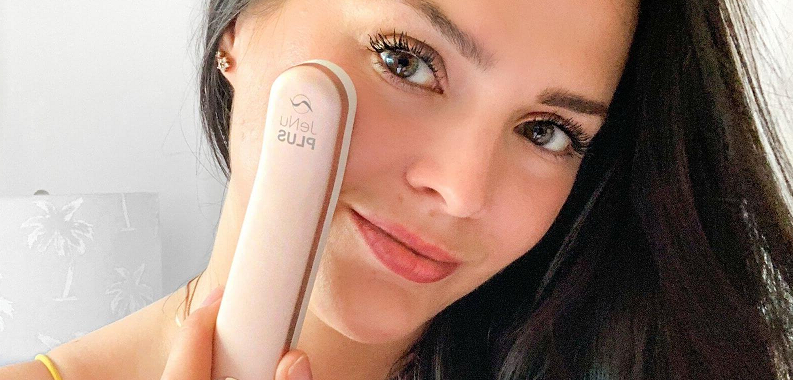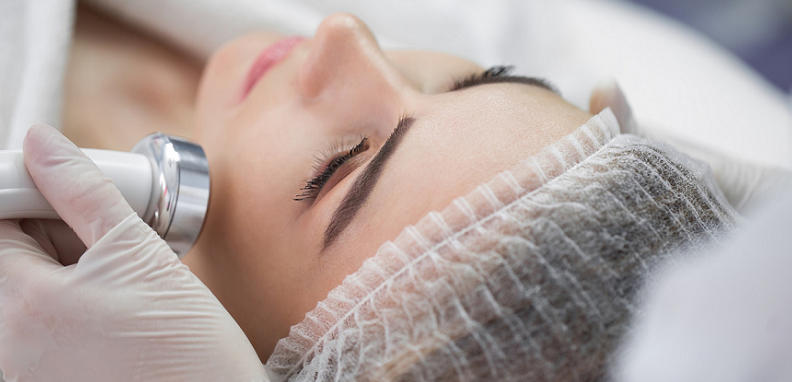
In our increasingly health-conscious world, skincare has evolved beyond the realm of topical creams and elixirs. We’re exploring the promising realm where the harmony of music meets the physiology of our skin. Throughout history, music has been used as a therapy to soothe the soul and heal the body. But did you know it might also have a profound impact on our skin’s health? From the rhythmic pulse of sound vibrations to the soothing melodies that lower stress levels, music could be playing an unseen role in your skincare routine.
Contents
Understanding the Connection Between Music and Skincare
How do the two seemingly disparate fields of music and skincare intersect? How does the melody of a song relate to the health of our skin? To grasp this connection, we must first take a journey back in time and look into the history of sound therapy, followed by examining the scientific basis of how sound impacts cells.
Brief History of Sound Therapy
Sound therapy is far from a new-age concept. It dates back to ancient cultures, where instruments and chanting were used for healing purposes. The Greeks used music to cure mental disorders, while Native Americans and shamans used singing and drumming for healing rituals. These ancient cultures recognized the potential power of sound vibrations on the human body.
In more recent years, the idea of sound healing has resurfaced in various forms, from binaural beats to the soothing sounds of nature incorporated into meditation practices. Now, this ancient wisdom is being investigated in a new context—the realm of skincare.
Scientific Premise: The Effect of Sound on Cells
To understand the connection between music and skincare, we need to delve into the world of cell biology. It might be surprising to learn that our cells can respond to their environment, including the physical force of sound vibrations.
Research has shown that cells can detect mechanical forces, such as the vibrations produced by sound, and translate them into biochemical signals — a process called mechanotransduction. In turn, these signals can impact various cellular processes like growth, movement, and function.
So, how does this connect to our skin? The skin, our body’s largest organ, is composed of billions of cells. If sound vibrations can influence cellular behavior, it’s conceivable that they might also affect skin cells and potentially the overall health and appearance of our skin [1].
However, it’s important to note that while this premise is scientifically plausible, the precise effects of sound vibrations on skin health are still an active area of research. The rest of this blog post will dive into what we currently understand about this fascinating intersection of music and skincare.

The Power of Sound Vibrations
We’re all familiar with music’s ability to stir emotions and energize our bodies, but how exactly do these sounds influence our biological systems?
Explanation of Sound Frequency and Vibrations
Sound is a type of energy made by vibrations. When any object vibrates, it causes movement in the air particles. These particles bump into the particles close to them, causing them to vibrate as well. This movement, called sound waves, keeps going until they run out of energy.
These sound waves have certain characteristics, including frequency and amplitude. Frequency refers to the number of vibrations per second, measured in Hertz (Hz), and is perceived as pitch in the human ear. Amplitude, on the other hand, is the height of the sound wave, which we perceive as volume.
How Sound Vibrations Interact with Our Body
We often think of sound in terms of what we hear, but sound vibrations can also be felt, creating a tactile sensation. Think about the last time you stood near a large speaker—you didn’t just hear the music; you could feel it too.
When sound waves enter our bodies, they cause our tissues, cells, and molecules to vibrate at varying frequencies. This process, as explained earlier, can lead to mechanotransduction, where these physical vibrations are converted into biochemical signals. These signals can potentially influence a wide range of cellular activities, affecting our health and wellbeing [2].
The Skin’s Reaction to Sound Vibrations
Now, how do these interactions translate to the health and wellbeing of our skin? Skin, with its multiple layers of cells, isn’t merely a passive barrier—it’s an active, dynamic organ that responds to a variety of environmental stimuli, including sound vibrations.
Some researchers suggest that sound waves, particularly those at low frequencies, might stimulate skin cells. This stimulation could possibly improve blood flow, promote the production of collagen (the protein responsible for skin’s elasticity), and aid in wound healing [3].

The Intersection of Music and Skincare
Just as a symphony weaves together distinct notes to create a beautiful piece of music, the dynamic processes of our skin cells may be influenced by the various frequencies and vibrations of sound.
Studies Linking Music and Skincare
While research directly connecting music and skincare is still emerging, some interesting studies have opened the door to this fascinating area. One notable study found that certain sound frequencies could promote wound healing by enhancing the migration of skin cells, an essential step in the wound healing process.
Other researchers have suggested that sounds, particularly lower frequencies, might stimulate the production of collagen, a crucial protein that gives our skin its elasticity and youthful appearance. However, it’s important to remember that these findings are preliminary, and more extensive research is needed to confirm and expand on these results [4].
Exploring the Effect of Different Genres of Music on Skin Health
Could the genre of music you listen to impact your skin? While it may sound far-fetched, there’s some scientific basis to the idea. Different types of music create different sound frequencies and emotional responses, which in turn could have varying effects on our bodies, including our skin.
For example, soothing music, such as classical or ambient, tends to lower stress levels. Considering that stress is known to aggravate skin conditions like acne, rosacea, and psoriasis, music that promotes relaxation could indirectly benefit skin health. On the other hand, high-energy music genres might stimulate blood flow, potentially delivering more oxygen and nutrients to the skin.
It’s an intriguing area of study, but one that requires more in-depth research to draw conclusive correlations.
Case Studies of Music-Enhanced Skincare Therapies
Several innovative skincare treatments have started integrating sound therapy into their protocols, demonstrating promising results. For instance, some high-end spas now offer sound baths as part of their facial treatments, with clients reporting enhanced relaxation and improved skin appearance.
In another case, a skincare clinic used low-frequency sound waves to enhance the absorption of topical skincare products—a process known as sonophoresis. While these case studies are anecdotal and don’t provide scientific evidence, they showcase the potential of combining music and skincare [5].

Potential Benefits of Music for Skincare
Could the simple act of listening to your favorite tunes enhance the effectiveness of your skincare routine? How might music play a part in combating common skin concerns like aging or stress-related conditions?
Stress Reduction and Its Impact on Skin Health
Music has long been known for its therapeutic effects on the mind, especially its ability to reduce stress. Listening to calming music can lower cortisol levels, the body’s main stress hormone, leading to a state of relaxation.
But what does stress have to do with our skin? Quite a bit, as it turns out. High levels of stress can worsen many skin conditions, including acne, eczema, and rosacea. It can also accelerate the skin’s aging process. By reducing stress, calming music may indirectly contribute to maintaining healthy skin, making it an excellent addition to a holistic skincare routine [6].
Music as an Aid in Skincare Routines
Beyond potential physiological benefits, music can play a role in creating a nurturing and enjoyable skincare routine. A carefully chosen playlist can turn your daily skincare regimen from a chore into a self-care ritual, making you more likely to stick with it. This consistent attention to skincare can lead to better outcomes, no matter what products you use.
Possible Anti-Aging Effects of Music
As we’ve explored, there’s preliminary research suggesting that sound vibrations might stimulate collagen production, a crucial element in keeping our skin firm and youthful. As we age, our bodies naturally produce less collagen, leading to wrinkles and loss of skin elasticity. If further research substantiates these initial findings, we might see music—or specifically tuned sound frequencies—used as a novel approach to anti-aging skincare [7].
Current Applications of Sound in Skincare Treatments
As we’ve established, the relationship between music and skincare is not just a concept of the future — it’s already here. Although we’re in the early stages of understanding this unique intersection, there are already applications of sound being used in skincare treatments today.
Overview of Sound-Based Skincare Devices
In the realm of high-tech skincare, sound-based devices are making their mark. One such device is the ultrasonic skin scrubber, which uses high-frequency vibrations to deep cleanse the skin and remove impurities. Other devices use micro-vibrations to stimulate blood flow and promote collagen production, offering a potential anti-aging effect.
While these devices don’t typically use music per se, they do utilize sound vibrations in a way that aligns with the principles we’ve been exploring. They offer a glimpse into how the science of sound is being harnessed for skin health.
Understanding Sonophoresis: Ultrasound for Enhanced Skin Absorption
Sonophoresis is another sound-based technique used in skincare, and it directly employs the power of ultrasound waves. The sound waves generated by an ultrasound device create tiny vibrations that shake the skin cells slightly, making the spaces between them wider and allowing skincare products to penetrate more deeply.
This method is especially useful for delivering active ingredients that might not otherwise be able to permeate the skin’s outermost layer, the stratum corneum. By enhancing absorption, sonophoresis can potentially increase the effectiveness of your favorite skincare products.
The Use of Binaural Beats in Skincare Therapy
While not a skincare treatment in itself, binaural beats—an auditory illusion created when two slightly different frequencies of sound are played in each ear—are increasingly used in conjunction with skincare routines for their relaxing effects.
Given that stress reduction can benefit skin health, as we discussed earlier, the incorporation of binaural beats into a skincare regimen could potentially contribute to an overall improvement in skin condition. They offer a unique way of harnessing the power of sound to create a relaxing, spa-like atmosphere at home.
These applications demonstrate how sound, in its various forms, is already being incorporated into skincare. As we continue to learn more about the relationship between sound vibrations and skin health, it’s likely that we’ll see even more innovative applications in the future.
How to Incorporate Music into Your Skincare Routine
Having explored the fascinating intersection of music and skincare, you might be eager to integrate this newfound knowledge into your skincare routine. But how can you start leveraging the potential benefits of sound vibrations for your skin’s health? Let’s delve into a few practical strategies that can help you incorporate music into your skincare regimen, whether it’s through creating a skincare playlist or trying out sound-enhanced skincare treatments.
Creating Your Skincare Playlist
Perhaps the simplest and most enjoyable way to incorporate music into your skincare routine is by creating a personalized skincare playlist. As we’ve discussed, music can lower stress levels and make your skincare regimen more enjoyable. Here are a few tips to help you curate your ideal playlist:
- Choose Relaxing Music: Opt for songs that you find soothing and relaxing. This can help reduce stress and create a more enjoyable skincare experience.
- Time It Right: Ideally, your playlist should last as long as your skincare routine. This can help you ensure that you’re not rushing through any steps and that each product gets the time it needs to work effectively.
- Vary Your Playlist: Change your playlist from time to time to keep things interesting and enjoyable.
Incorporating Binaural Beats
If you’re looking to take your sound-enhanced skincare routine a step further, consider incorporating binaural beats. These are sounds that are said to induce the same mental state associated with a meditation practice, but much more quickly. Listening to binaural beats during your skincare routine can turn it into a deep relaxation session.
There are plenty of free resources available online where you can find binaural beats. Just remember to use headphones, as the effect requires different frequencies in each ear.
Trying Out Sound-Enhanced Skincare Treatments
If you’re interested in exploring some of the high-tech applications of sound in skincare, there are a few options you can try. These include ultrasonic skin scrubbers and devices that use micro-vibrations to stimulate the skin. Alternatively, consider booking a treatment at a spa that offers sound-enhanced facials or other sound-based therapies.
While we still have a lot to learn about the potential benefits of music for skincare, these steps can help you start exploring this exciting intersection of sound and skin health. As always, remember that a balanced skincare routine should also include a healthy diet, regular exercise, and a good sleep schedule.
References
[1] How Music Can Elevate Your Skincare Routine
[2] Music Therapy Might Help You with Symptoms of This Skin Condition
[3] The Beauty Benefits of Music
[4] How Music Affects Your Mind, Mood and Body
[5] Possible Mechanisms for the Effects of Sound Vibration on Human Health
[6] What Is a Sound Bath?
[7] Good vibrations: Purdue researchers develop technology that uses pulses to send messages through the skin







